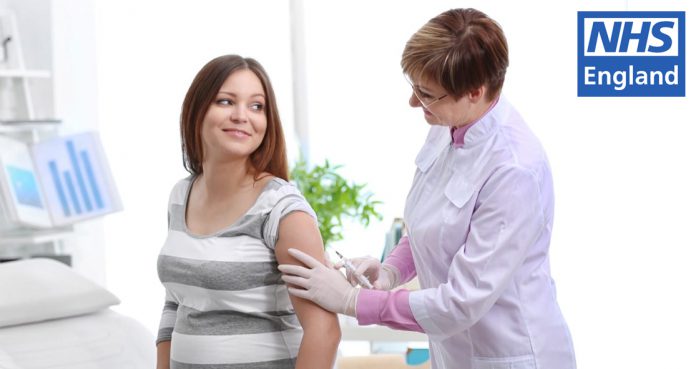Cervical cancer could be eliminated in England with a combination of vaccination and HPV screening, according to the NHS experts.
The publically funded England’s healthcare system will now test every woman for human papillomavirus (HPV), the virus that is responsible for causing cervical cancer in most women.
The experts said there is a great potential to end the deadly disease, which kills more than 850 women in the United Kingdom.
The HPV vaccine, which is given to girls from the age of 12, has been known to be highly effective against HPV infection, which accounts for more than 80% cases of cervical cancer.
In December, the NHS reoriented routine screening to test primarily for the virus and women who are tested positive will have their smear sample tested for abnormal cells associated with cervical cancer.
National Clinical Director for Cancer at NHS England and Improvement Prof. Peter Johnson said, “Screening is one of the most effective ways of protecting against cervical cancer and there is no doubt this new way of testing will save lives. It is vitally important that all eligible people attend for their screening appointments, to keep themselves safe.”
“Combined with the success of the HPV vaccine for both boys and girls, we hope that cervical cancer can be eliminated altogether by the NHS in England,” Prof. Johnson added. “The chances of surviving cancer are at a record high, but there is always more we can do, as we continue to deliver our long-term plan.”
The NHS officials believe that more than 600 cervical cancer cases in England could be prevented by the new HPV screening test.
They expect a substantial drop in the number of cervical cancer cases as the generations of young women given the vaccine get older.
An Australian study published last year in the journal Lancet estimated that comprehensive vaccination and screening could virtually eliminate cervical cancer.
It is expected that the vaccination can make a huge difference for girls and women from low- and middle-income countries that have the most number of cervical cancer cases and where there are no routine screening programs.
Director of Jo’s Cervical Cancer Trust, Robert Music, said, “It is exciting that we are seeing advances in cervical cancer prevention and must continue to look to the future to make sure our cervical screening program continues to adapt and evolve.”
“The day that cervical cancer is a disease of the past is one we should be aiming to get to as soon as possible,” he continued. “Cervical screening is such an important test, but there are many reasons it can be difficult to attend.”
“We must continue to understand and tackle these to ensure as many women benefit from this far more sensitive test and we save as many cancers diagnoses and lives as possible,” Music added.
Director of Screening at Public Health England, Prof. Anne Mackie, said, “With HPV vaccinations for all year 8 pupils and HPV testing available nationally, cervical cancer promises to become very rare indeed.”
“This is a truly momentous achievement, but to ensure we consign this disease to the past we must keep vaccination rates high and continue to provide safe and acceptable screening for all women,” she added.
Encouraging all women to get screened, Public Health Minister Jo Churchill said, “Thousands of fewer women will be diagnosed with cervical cancer as a result of improved screening services and the HPV vaccine and it’s incredible to think that cervical cancer could be eradicated for good.”
“The NHS long-term plan has committed to an overhaul of screening programmers, new investment in state-of-the-art technology and a boost in research, which will help more people survive cancer each year,” Churchill added. “I encourage all women to attend screening appointments.”





















